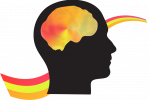If you’ve been feeling confused, have trouble concentrating, and have experienced a change in personality, it might be possible you’re developing early onset dementia. The good news is, if you’re under 40, it’s very unlikely this is the case. If you’re 40 or older, it may be time for a checkup.
You’re probably familiar with dementia, as more than 5 million people in the US suffer from it, as BrainTest.com states. So it’s very likely you know someone who has been affected by the disease. As for early onset dementia, as you can probably guess, it is a type of dementia that appears early, before the age of 65.
There are many diseases and conditions that share symptoms with dementia, so if you are under the age of 65, you’re more likely to be suffering from a different condition. Of the 5 million Americans with dementia, only about 5% were early onset.
Still, if you are above 40, here are some symptoms you may need to keep track of. If you’re experiencing more than a few, it is critical to see your doctor about an exact diagnosis.
Those with early-onset dementia may suffer from:
Memory issues that can disrupt daily life. This can be anything from forgetting schedules or plans, and repeating questions.
Feeling lost, not knowing where you are or what time/day it is.
A change in personality that might include a loss of confidence, uncalled for bad moods, or lack of interest in activities you formerly enjoyed. This can be subtle at first, and is often attributed to environmental factors. If these symptoms persist, it can be a sign of early onset dementia.
Difficulty communicating, inability to find the right words, or forgetting the meaning of certain words.
Difficulty judging speed or distance.
Difficulty recognizing objects or people.
Reduced concentration or inability to concentrate.
Inability to follow tasks or perform daily activities.
It’s important to remember that, in the early stages, these symptoms may seem normal. The majority of people have experienced one or more of these symptoms throughout their lives.
But think of it this way: a healthy person may forget the name of someone they just met, but someone with dementia may consistently forget the names of people they’ve known for a long time. Or a healthy person might have a hard time concentrating occasionally while someone with dementia will show inability to concentrate for prolonged periods, even on subjects they find fascinating.
Early diagnosis is critical because many of these symptoms can also be caused by other diseases. Not to mention the fact that the sooner you begin treating dementia, the easier it is to plan for future care.
If you, or someone you know, is suffering from several of the above symptoms, it is in your best interest to seek out the help of a medical professional. Contact your doctor or specialists in the neuroscience field.
We at the neuroscience center are here to help you if you feel you may be developing early onset dementia. Don’t ever hesitate to contact us for a consultation:








